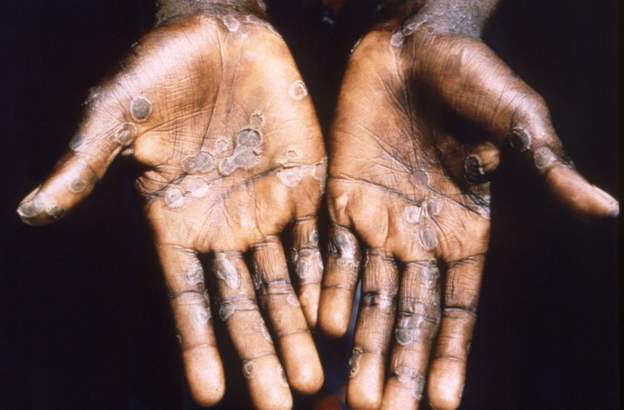The Ghana Health Service (GHS) has announced the confirmation of a monkeypox case in the Bia West District of the Western North Region. The case involves a 15-year-old male patient who sought treatment at a district hospital on September 25, 2024, after experiencing a three-day history of fever, body aches, sore throat, and a rash that appeared on his palms and face. The identification of this case is a significant concern for public health authorities as it highlights the ongoing risk and potential spread of the monkeypox virus within the community. The GHS’s prompt response and investigation into the matter are crucial for containing any further outbreaks.
Following the confirmation of this case, the GHS reported that there are 230 suspected monkeypox cases across 88 districts in the country. This rising number of suspected cases indicates a potential increase in transmission, prompting the health officials to take immediate action. Additionally, twenty-five individuals who had close contact with the confirmed patient have been identified, and they are currently being monitored to prevent further spread of the virus. Vigilance and swift action are essential in curtailing the virus, and the collaboration among healthcare providers, local authorities, and the public plays a significant role in managing this situation.
As part of its ongoing response efforts, the GHS is conducting an initial public health investigation into the confirmed monkeypox case and plans to notify the World Health Organization (WHO). This engagement with international health authorities is critical in ensuring that Ghana receives the necessary support and resources to manage and contain the outbreak adequately. Public health responses require the coordination of both local and international health systems; thereby, notifying WHO could lead to greater awareness, research, and potential interventions to mitigate the situation effectively.
The public is advised to remain vigilant and adhere to health guidelines to prevent the spread of the monkeypox virus. It is crucial for community members to recognize the symptoms associated with mpox, which include a painful rash, fever, headache, muscle aches, back pain, and low energy. While many individuals do recover from the infection, there are cases where patients can experience severe illness. Public awareness of these symptoms will enable quicker identification of potential cases and facilitate timely medical intervention.
Mpox is caused by the monkeypox virus (MPXV), which belongs to the Orthopoxvirus genus in the Poxviridae family, alongside variola, cowpox, and vaccinia viruses. The monkeypox virus has two distinct clades: clade I (with subclades Ia and Ib) and clade II (with subclades IIa and IIb). The global outbreak of clade IIb began in 2022 and has continued to affect various regions, including some African countries. Furthermore, outbreaks of clades Ia and Ib are emerging, particularly in the Democratic Republic of the Congo and other nations. Notably, clade Ib has also been detected outside Africa, underscoring the global nature and potential for spread of this infectious disease.
The current situation in Ghana serves as a reminder of the importance of public health vigilance in the face of emerging infectious diseases like monkeypox. As GHS continues to monitor the confirmed case and those potentially exposed, the focus remains on preventing further transmission. Public cooperation in following health guidelines, combined with timely reporting of symptoms and adherence to monitoring protocols, can greatly influence the outcome of this public health challenge. Sustaining awareness and engagement with local and international health organizations will be key in navigating this situation and ensuring community safety.


